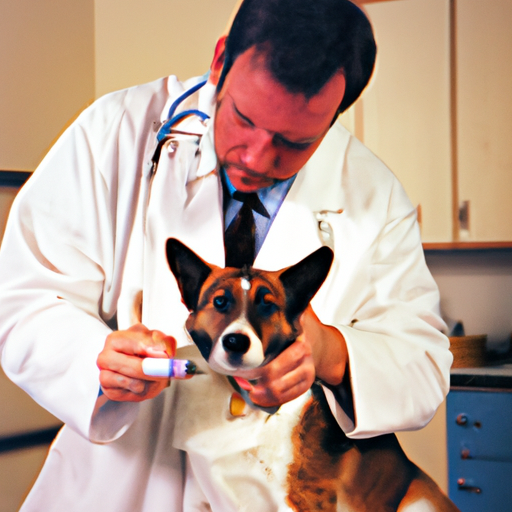Understanding the Importance of Rabies Shots
As a caregiver, you must know that dogs are more than just pets; they’re part of the family. Their health and safety are of paramount importance. One crucial aspect of ensuring your furry friend’s wellbeing is getting them vaccinated against rabies. It’s not just a recommendation, but a legal requirement in many parts of the world.
Rabies, a viral disease, can be deadly for dogs. It’s transmitted primarily through the bite of a rabid animal. In dogs, the disease can cause a range of symptoms, including fever, seizures, paralysis, and even death. Thankfully, a simple vaccine can protect your pet from this fatal disease.
The Ideal Time for Rabies Shots
Typically, puppies receive their first rabies vaccination at around 12 to 16 weeks of age. However, the timing can vary depending on the laws in your area and your vet’s recommendations.
Here’s a general timeline for dog vaccinations:
- 6 to 8 weeks: Distemper, parvovirus
- 10 to 12 weeks: DHPP (vaccines for distemper, adenovirus [hepatitis], parainfluenza, and parvovirus)
- 12 to 24 weeks: Rabies
Note: The schedule can vary depending on the dog’s health, breed, and potential exposure to diseases.
Revisiting Rabies Shots: Booster Vaccines
Just like humans, dogs need booster shots too. In most areas, the first rabies vaccine is valid for one year. After that, your dog will probably need a booster shot every three years. However, this can depend on local regulations and your vet’s advice.
You might ask, “Why revisit shots?” Here’s why:
- Immunity wearing off: The immunity provided by a vaccine gradually wears off over time.
- Legal requirements: In many areas, regular rabies boosters are not just medically recommended but legally required.
Spotting Rabies Symptoms in Dogs
As a vigilant caregiver, you should also be aware of the signs and symptoms of rabies in dogs. These include:
- Changes in behavior (aggression, restlessness)
- Fever
- Sensitivity to light and sound
- Seizures
- Paralysis
If you notice any of these symptoms in your pet, seek immediate veterinary attention.
FAQ Section
Q: How often should dogs get rabies shots?
A: After the initial shot at 12 to 24 weeks, dogs typically need a booster every one to three years.
Q: Are rabies shots necessary for indoor dogs?
A: Yes, all dogs, regardless of their lifestyle, should be vaccinated against rabies.
Q: Can side effects occur after a rabies shot?
A: Yes, side effects can occur but are generally rare. They can include mild fever, loss of appetite, and localized swelling.
As caregivers, it’s our responsibility to protect and care for our four-legged friends. By ensuring they get their rabies shots on time, you’re taking a crucial step towards a healthy, happy life for your pet.



